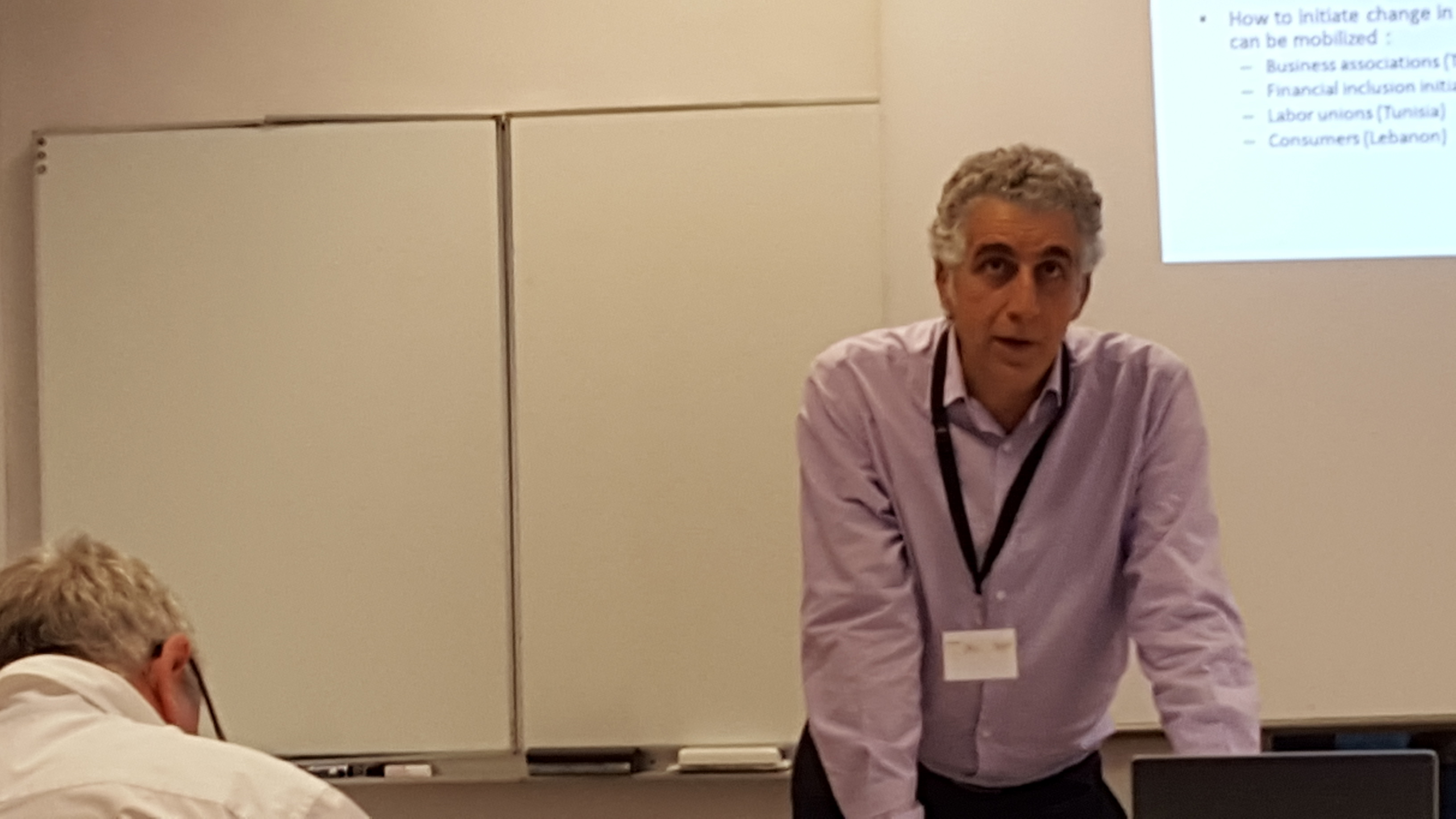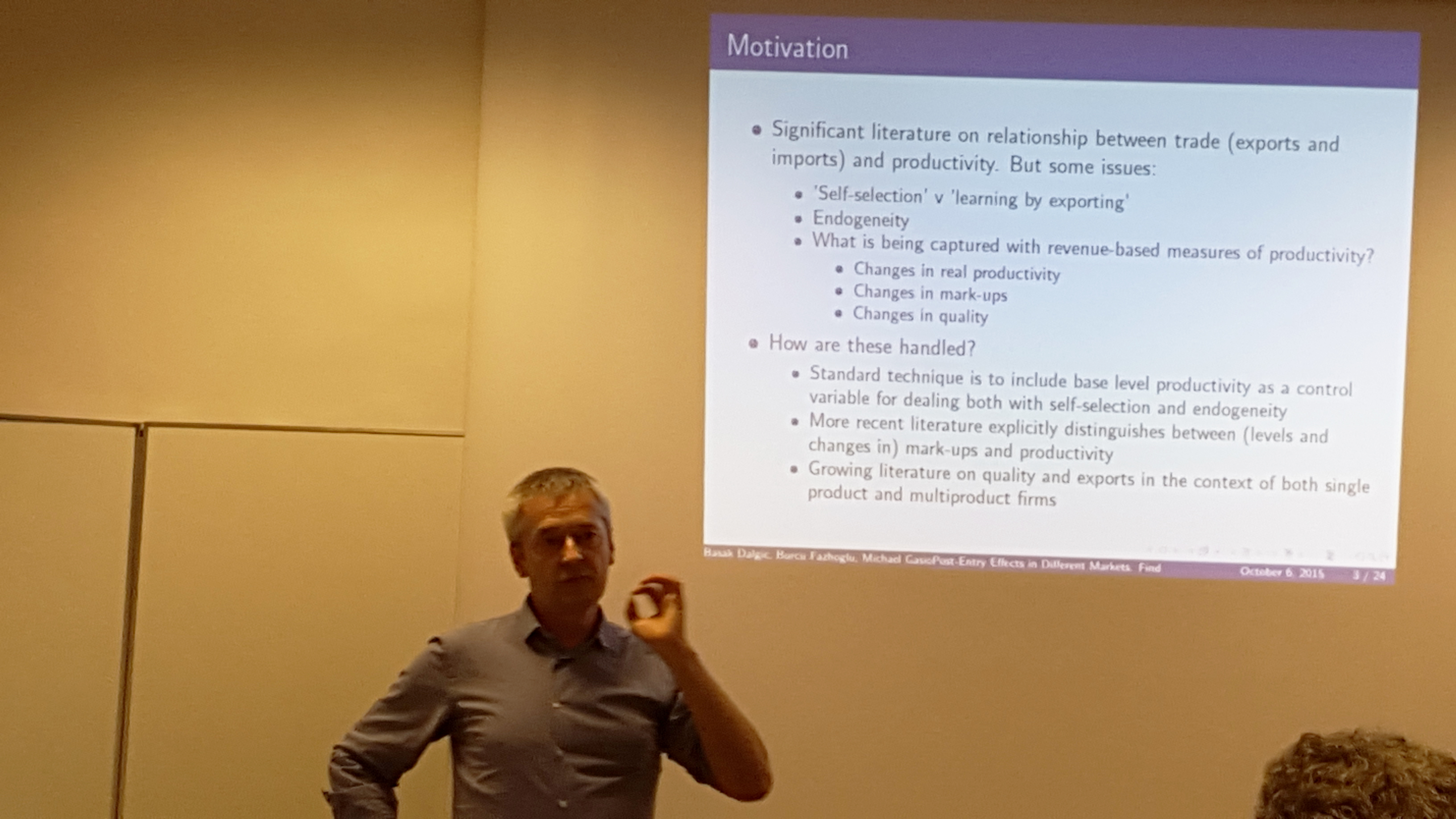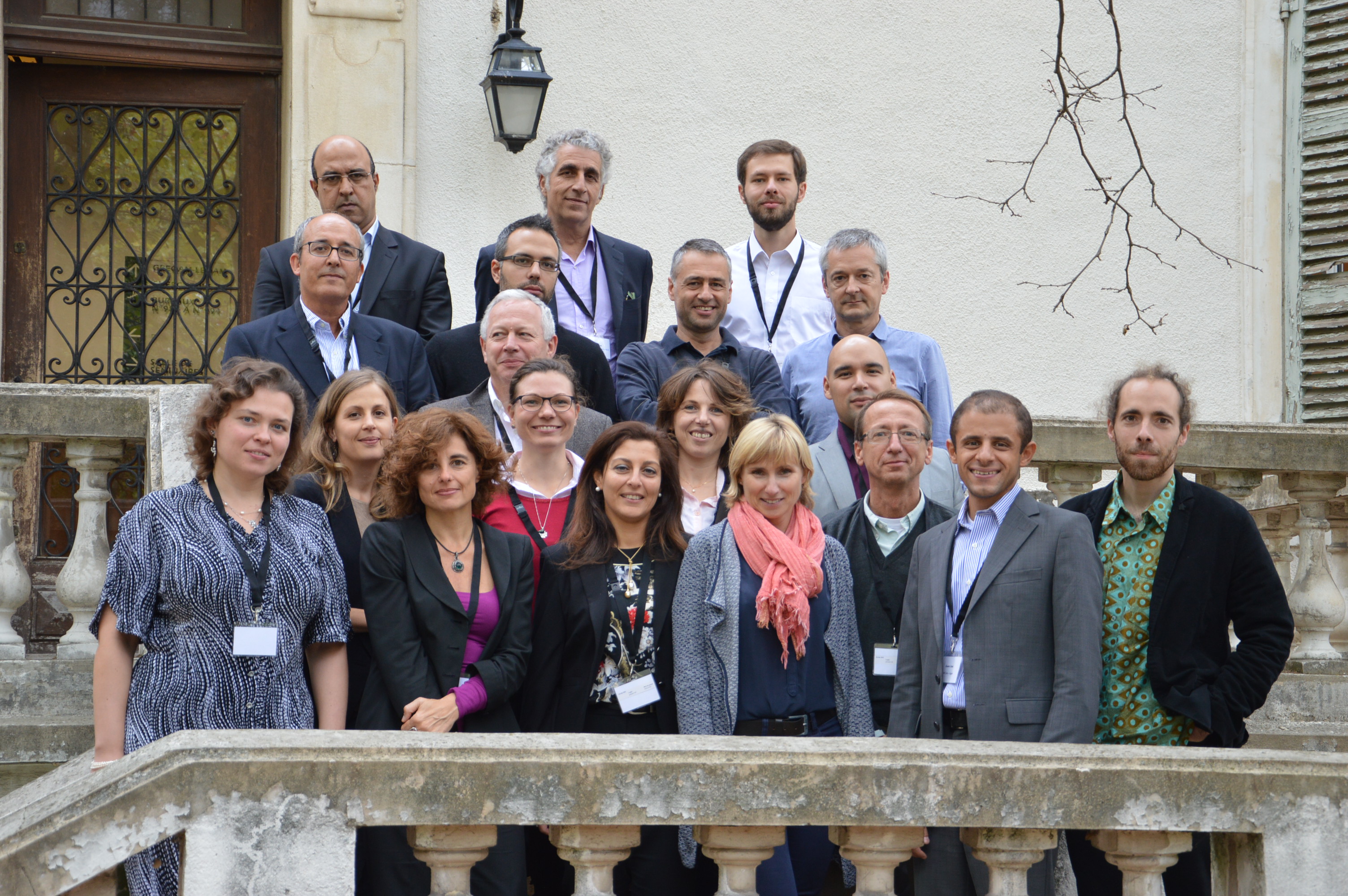
Participants from the Workshop- Photo by Nathalie Bureau du Colombier, Econostrum
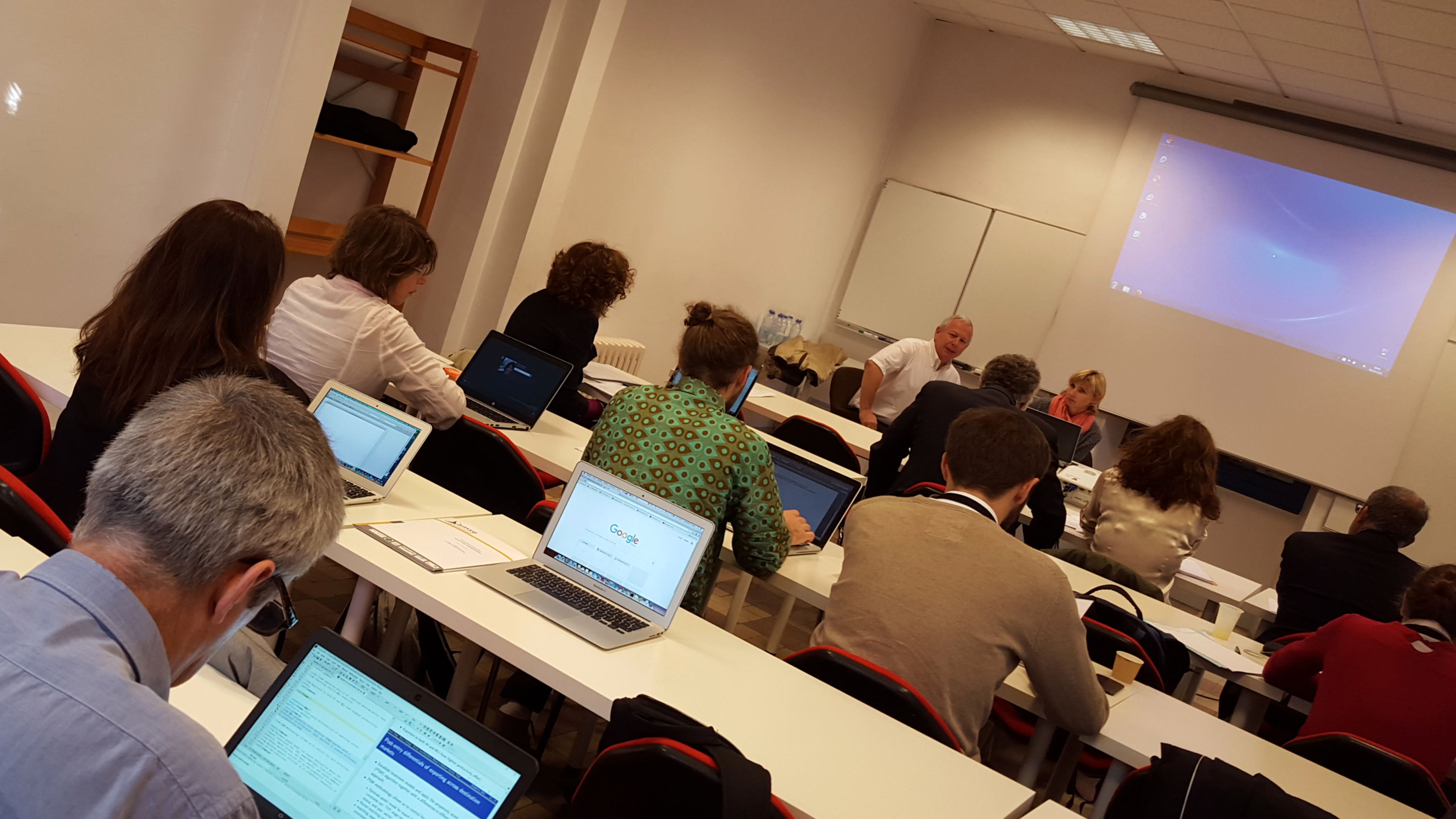
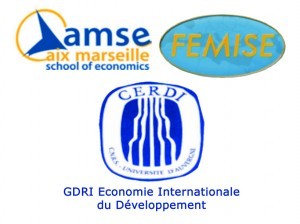 FEMISE*, the GDRI Economie Internationale du Développement and Aix-Marseille School of Economics (AMSE) organized a workshop on “Firms and Globalization” in Aix-en-Provence, France on the 6th of October 2015.
FEMISE*, the GDRI Economie Internationale du Développement and Aix-Marseille School of Economics (AMSE) organized a workshop on “Firms and Globalization” in Aix-en-Provence, France on the 6th of October 2015.
This workshop discussed the relationship between the adjustments of firms and the phenomena related to economic globalization (reduction of tariffs, harmonization of non-tariff measures, trade diversion and increase in trade, integration within value chains etc.) focusing on the specific situation of developing and emerging economies. Particular attention was paid to the case of Mediterranean countries, which were the subject of a specific session.
This exchange between researchers and specialists was designed to provide an update on recent theoretical and empirical results, as well as on the implications in terms of economic policies.
Among their exchanges, participants discussed on how in the Mediterranean countries (as witnessed by the Egyptian case) slow job creation continues, despite the relaxation of many obstacles to private sector activity, in great part because “crony capitalism” has circumvented market reforms and continued to stifle competition, innovation, and job creation. The feasibility of industrial policy under a closed political system is thus very doubtful.
Meanwhile research results in one of the studies suggested that SME’s chances of exporting are highly dependent on the arrangements they have with the banks and the bank services used. Firms with access to bank services are more likely to export than those with limited access.
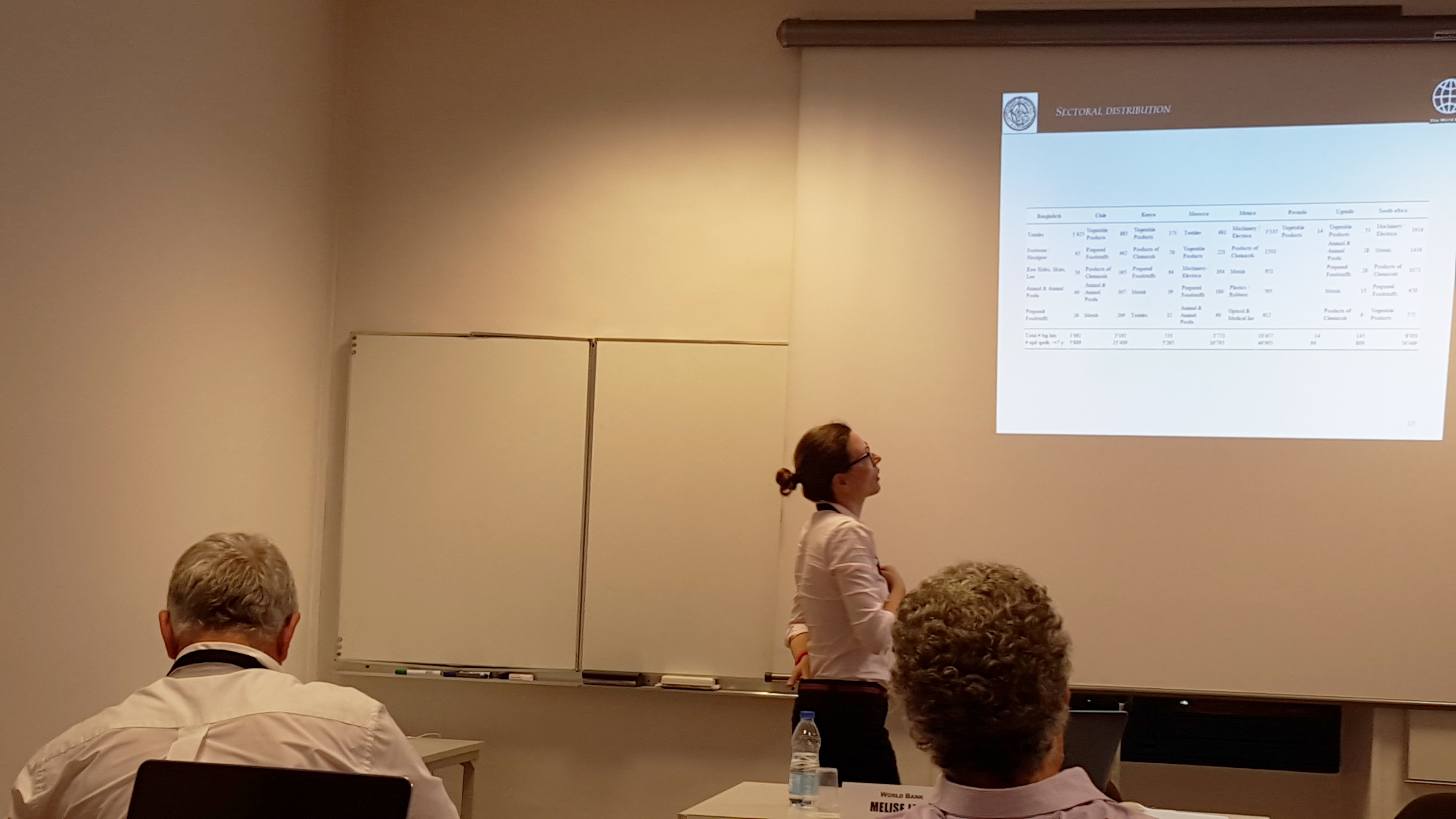
Melise Jaud, World Bank
Furthermore, researchers looked for answers to the following question: to what extent the export status of firms goes hand in hand with the technological choice and firm total-factor-productivity gaps with non-exporters. In the Egyptian case, it was found that, whatever the technology class, exporters are on average to have a higher productive performance (except for the Food sector).
Additionally, the experience of export diversification and sophistication in a specific institutional set up in Tunisia was the focus of another study. It was found that, the issue of picking winners ex-ante does not seem to be the main problem. The main issue seems to be the limited success in most diversification attempts in achieving sustained growth.
As evidenced by a study focusing on Romania, it was stressed that FDI promotion can have a meaningful impact for quality upgrading for domestic exporters.
Meanwhile, another paper studied the relationship between factor price and firm-country-industry characteristics. Among the conclusions it was found that the skill premium is higher in a skill intensive industry (within a country) and maybe higher in a skill abundant country.
Other questions that are equally policy-relevant were tackled and a lot more was learned during this workshop and so we invite you to check the articles presented and the powerpoint presentations below.
Access selected presentations and the papers of the Workshop:
Ishac Diwan: Private sector growth and cronyism in Egypt (PPT) – The Effect of Cronyism on Private Sector Growth in Egypt (paper in PDF)
Matej Bajgar: Climbing the Rungs of the Quality Ladder: FDI and Domestic Exporters in Romania (Download the PPT), (Downlaod the paper in pdf)
Chahir Zaki: Trade and Access to Finance of SMEs: Is there a Nexus ? (Download the PPT), (Download the paper in PDF)
Related Articles:
![]() FEMISE participated with the financial assistance of the European Union within the context of the European Commission-FEMISE project on : “Support to economic research, studies and dialogue of the Euro-Mediterranean Partnership”.
FEMISE participated with the financial assistance of the European Union within the context of the European Commission-FEMISE project on : “Support to economic research, studies and dialogue of the Euro-Mediterranean Partnership”.



